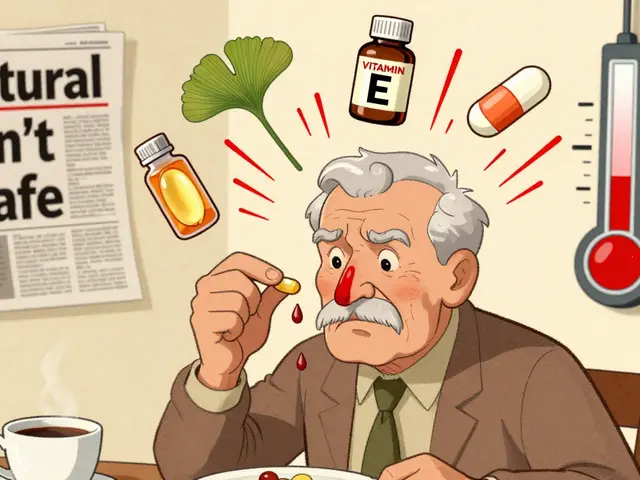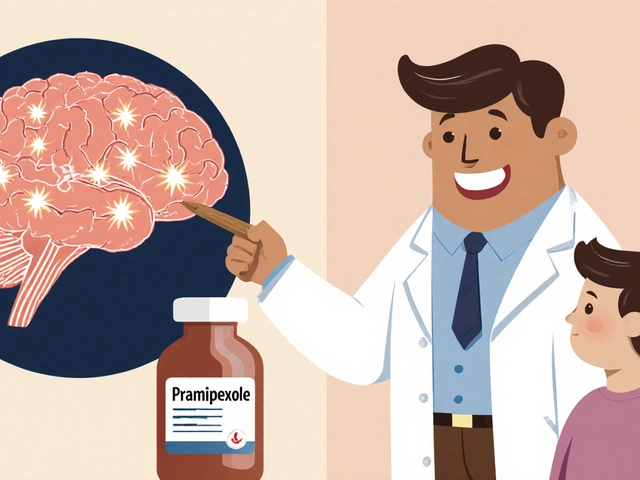Side Effects Alendronate: What You Need to Know
If you’ve been prescribed alendronate for osteoporosis, you’ve probably wondered what side effects to expect. The good news is most people only feel mild, temporary issues. The bad news is a few rare problems can be serious. Below we break down the typical complaints, why they happen, and easy steps to keep them at bay.
Common, Usually Mild Reactions
About a third of users notice an upset stomach after the first dose. You might feel heartburn, nausea, or a slight sore throat. These feelings often fade after a few weeks if you follow the “empty‑stomach rule”: take the tablet with a full glass of water, sit upright for at least 30 minutes, and avoid food, coffee, or alcohol during that time.
Another frequent gripe is joint or muscle pain. It’s thought to be a reaction of the bone‑turnover process. Over‑the‑counter ibuprofen or a short break from the medication (under your doctor's guidance) can help. Keep a symptom diary; it makes it easier for your doctor to spot patterns.
Rare but Serious Signals
In less than 1% of cases, alendronate can cause jawbone problems known as osteonecrosis of the jaw (ONJ). It usually shows up after dental work, with a sore, exposed bone that won’t heal. If you plan any extractions or implants, tell your dentist you’re on alendronate and schedule a dental check‑up before starting the drug.
Another rare issue is an atypical femur fracture—sometimes called a “chalk stick” break. It feels like a dull ache in the thigh or groin that worsens with activity. If you notice this, stop the medication and call your doctor right away. Early imaging can catch tiny cracks before they turn into full breaks.
Allergic reactions, such as rash, itching, or swelling of the face, are very uncommon but need immediate attention. If you see any of these signs, seek emergency care.
To reduce the chance of serious problems, keep your vitamin D and calcium levels in check, stay active with weight‑bearing exercise, and attend regular bone density scans. Your doctor will adjust the dose or consider a drug holiday if you’ve been on alendronate for five years or more.
When should you call the doctor? Any persistent stomach pain, difficulty swallowing, severe chest pain, or sudden leg pain should trigger a call. Also, if you notice any unusual bruising or bleeding, it could hint at an interaction with other meds.
Finally, remember that alendronate isn’t a cure; it’s a tool to keep bones strong while you build healthy habits. Pair it with a balanced diet, calcium‑rich foods, and a regular walking routine, and you’ll give your skeleton the best chance to stay sturdy.
Got more questions? Write them down and bring them to your next appointment—your health team is there to help you understand every side effect, big or small, so you can stay confident in your osteoporosis plan.





